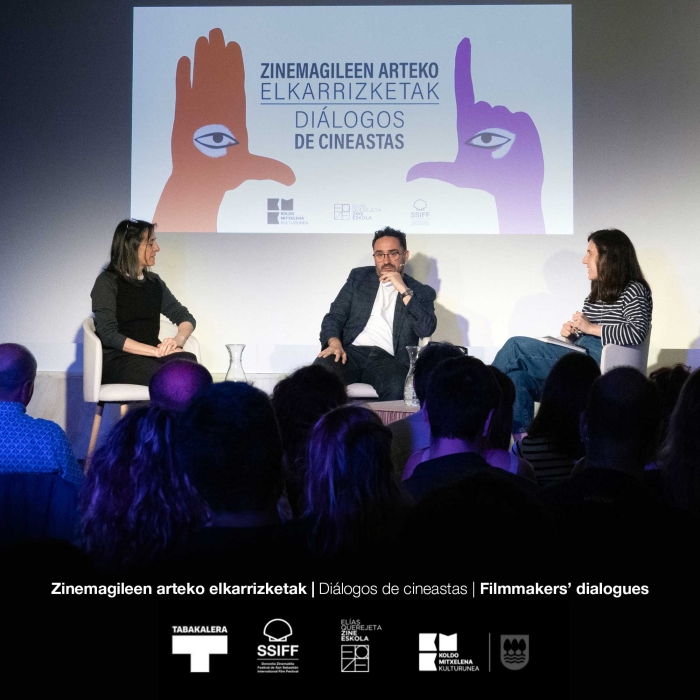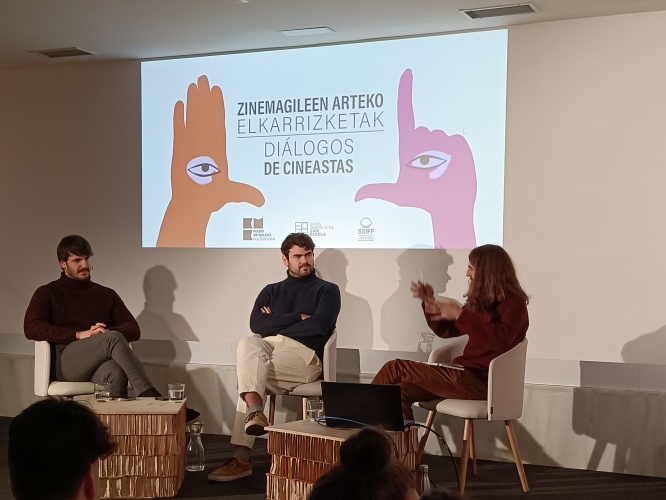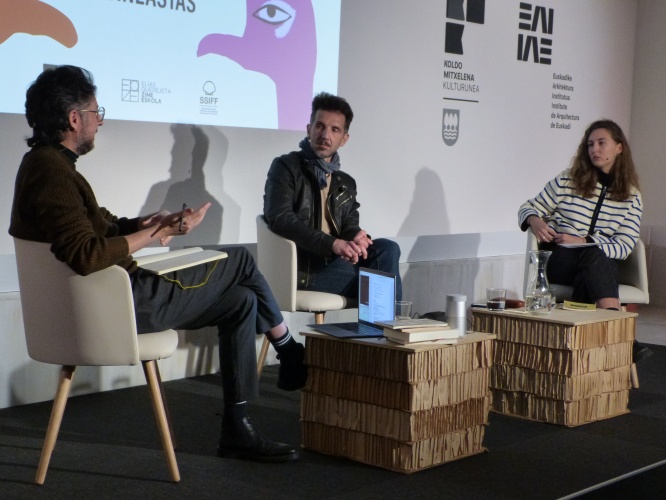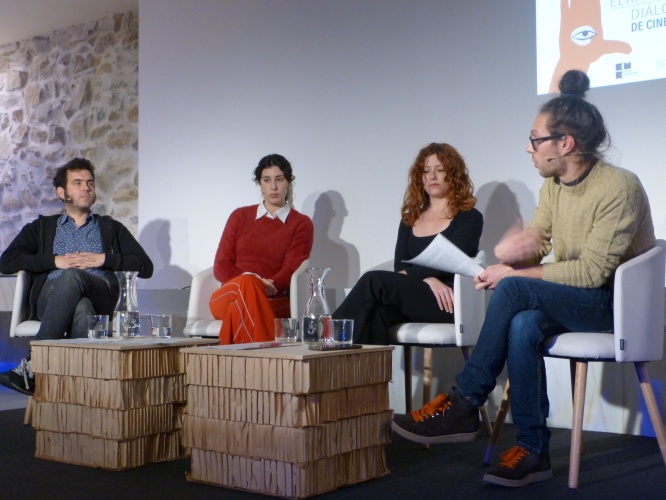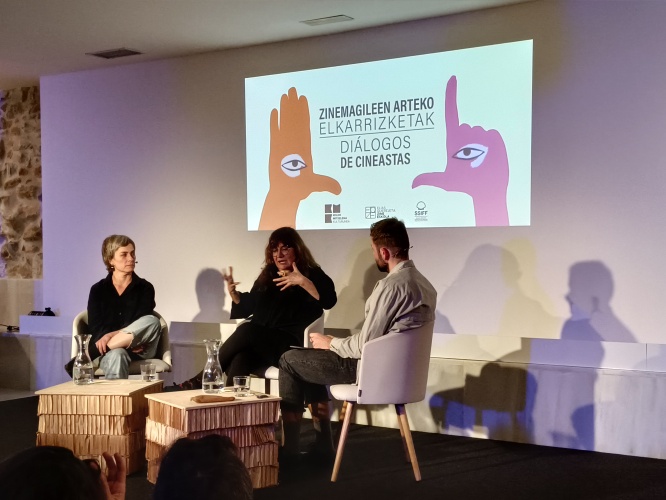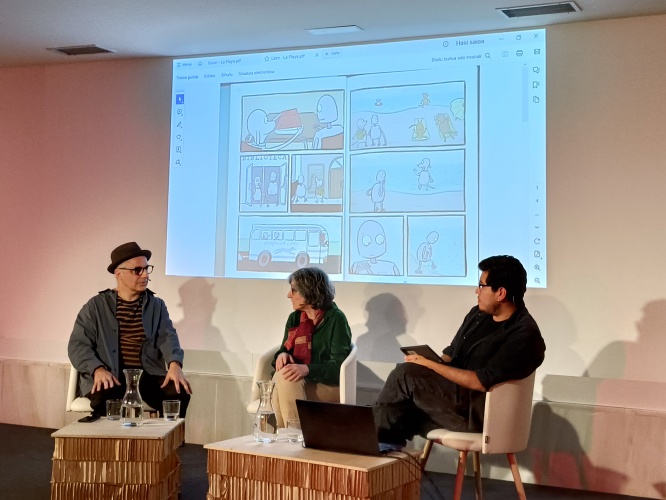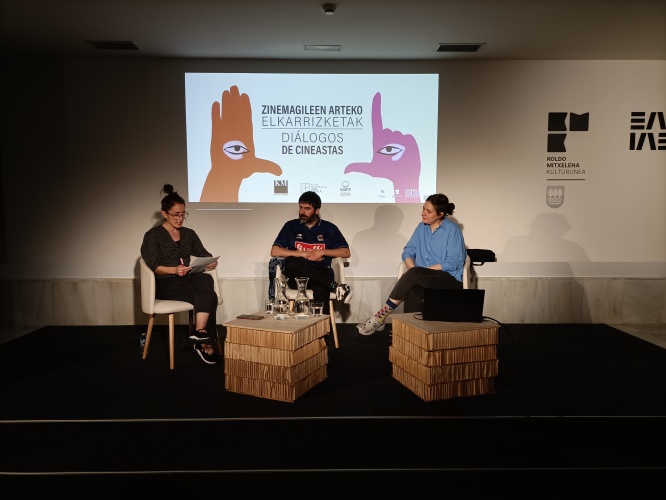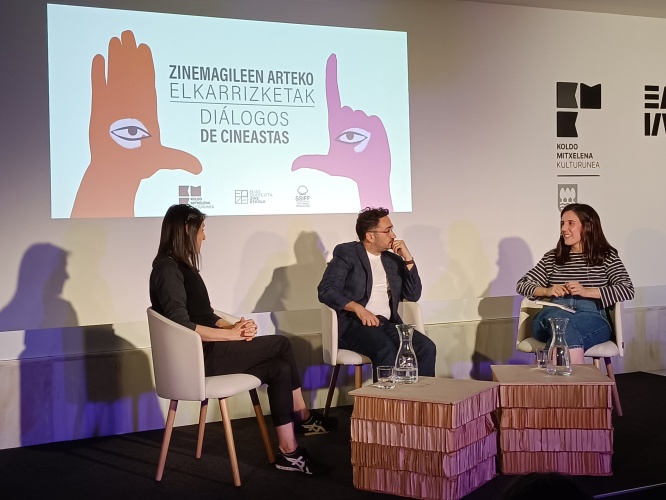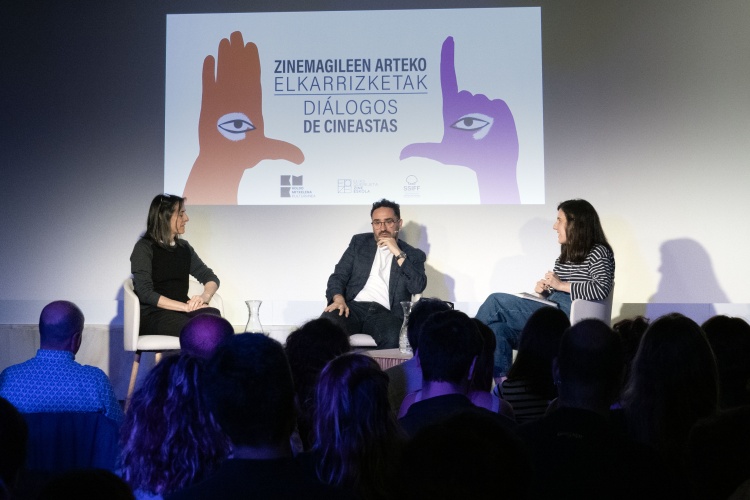Now that the third edition of the Filmmakers' Dialogue season is over, organised by the Koldo Mitxelena Kulturenea together with Z365, the Festival All Year Round initiative of the San Sebastian Festival and the Elías Querejeta Zine Eskola, all of the conversations held this year will be available for viewing from tomorrow, 28 June, on the Koldo Mitxelena Kulturunea YouTube channel and on the Z365 website.
This third season of the cycle, intended for film students and aficionados, had the participation of professionals boasting recognised prestige, including Isabel Coixet, Sara Mesa, J.A. Bayona, Belén Atienza, Isabel Herguera, Pablo Berguer, Víctor Uriarte, Carlos Muguiro, Elena Martín, Laura Ferrés, Javier Macipe, Belén Funes and Marçal Cebrián, as well as the Negu Hurbilak collective.

In the words of Goizane Álvarez, Deputy for Culture, Filmmakers' Dialogues is "more than just a series of conversations; it is a window to creativity, an opportunity for Gipuzkoa to delve into the fascinating world of cinema". Álvarez also said that, through the Koldo Mitxelena Kulturunea, the Department of Culture seeks "not only to enrich cinematic appreciation in our territory, but also to strengthen the connection between moviemakers and the audience".
The sessions of the third edition of Filmmakers' Dialogues ran from January to June this year and the Koldo Mitxelena Kulturenea considers response to the season to have been highly positive. "Not only was attendance consolidated, but the number of attendees has risen, confirming the interest of the people of Gipuzkoa in the cinema and, in this case, in the lesser known side of the cinema; interest in learning about the work developed by moviemakers in the different fields: production, animation, screenwriting, etc.", they said.

We should point out that one of the new features this edition has been the change of hub, given that the discussions took place in the new Function Room of the Koldo Mitxelena Kulturenea, located in Santa Teresa Convent in San Sebastian's Old Town, home to the KMK activity while partial renovation work is underway on the building in Calle Urdaneta.
On the other hand, the programme of this third edition of the Filmmakers' Dialogues highlighted the educational angle, with the possibility of taking a closer look at the training aspect, offering the public free enrolment to guarantee their place at all sessions and which came with an additional offer of activities. On the one hand, participation in the practical workshop Euskal Herria galdua eta aurkitua / El País Vasco perdido y encontrado / The Basque Country lost and found, given by the well-known archivist, moviemaker, writer and educator Rick Prelinger. The workshop, focused on intervention and the editing of archive footage, took place from 19-23 February. On the other hand, participation in Irla mortu bat / Una isla desierta / A Desert Island based, among other subjects, on the screening of various full-length and short films curated by students from the EZQE film curating course, ran from 9-12 April.

These experiences will culminate in September, during the 72nd Festival, where those registered to participate in this edition of the Filmmakers' Dialogues can enjoy invitations to Official Selection or Velodrome screenings. In addition, the first thirty people to have registered will also obtain a copy of the publication issued by the Festival itself.
Filmmakers' Dialogues
Also note that the Filmmakers' Dialogues programme, as well as moving away from the sole view of the moviemaker, aims to explain the more traditional trades involved in developing a project and, as a result, to help participants to view and read the cinema critically, in a context whose circumstances are prompting it to mutate in all possible directions.
This cinematic approach of the Koldo Mitxelena Kulturenea corresponds to the main line of work developed by the centre: discussion, dialogue and knowledge. In this context, one of the main areas of work is to support, promote and spread knowledge of audiovisual projects. Here mention must be made of the range of actions being developed by the Department of Culture at the Provincial Council of Gipuzkoa: from creation of the Elías Querejeta Zine Eskola itself, to grants for enrolling in said school and incorporation of the Provincial Council to the San Sebastian-Gipuzkoa Film Commission.

